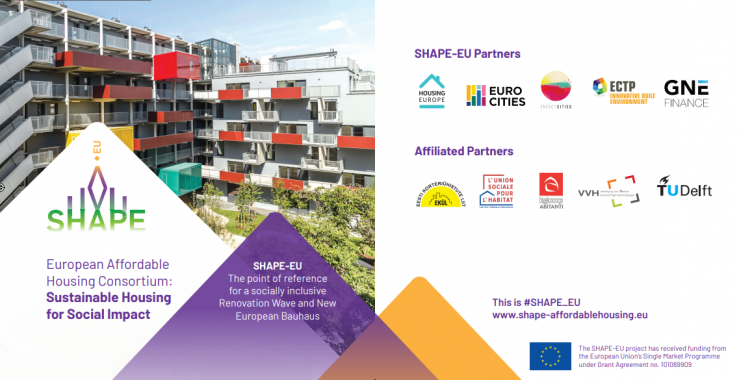Provision of affordable housing in Europe, North America and Central Asia
The document “Provision of Affordable Housing in Europe” explores the critical issue of affordable housing across Europe, highlighting the various challenges and opportunities that exist within the current housing landscape. It emphasizes the need for innovative policies and collaborative efforts to address the growing demand for affordable housing, particularly in urban areas where prices have escalated significantly.

Further reading:
Affordable Housing in Europe: Innovative Public Policies that can … cidob
EU Support for Housing Reforms housingeurope
Context of Affordable Housing in Europe
The report begins by outlining the pressing need for affordable housing in Europe, noting that many citizens face difficulties accessing decent and affordable living spaces. Factors contributing to this crisis include rapid urbanization, rising property prices, and stagnant wages. The document points out that approximately one-third of Europeans spend more than 40% of their income on housing, which is considered a significant burden.
Key Challenges
- Supply Shortages: The report identifies a substantial gap between the demand for affordable housing and the available supply. Many countries have seen a decline in social housing stock due to years of underinvestment.
- Rising Costs: The increasing costs of construction materials and land, coupled with regulatory barriers, have made it challenging to develop new affordable housing units.
- Economic Inequality: The disparity in income levels across different regions exacerbates the housing crisis, with low-income households particularly affected by high rental costs and limited options.
- Policy Fragmentation: The lack of cohesive policies at the national and EU levels often leads to inconsistent approaches to tackling housing issues, making it difficult to implement effective solutions.
The Role of Social Investment
The document emphasizes that social investment plays a vital role in addressing housing inequalities. By investing in affordable housing initiatives, governments can not only provide immediate relief to those in need but also foster long-term economic stability. Key components of social investment in housing include:
- Public Housing Initiatives: Governments are encouraged to increase funding for public housing projects, ensuring that a significant portion of new developments is designated as affordable.
- Housing Assistance Programs: Financial support mechanisms such as rent subsidies and housing allowances can help low-income families afford stable housing.
- Community Engagement: Involving local communities in the planning and development processes ensures that housing solutions meet their specific needs.
Innovative Solutions and Best Practices
The report highlights several innovative approaches being implemented across Europe to improve access to affordable housing:
- Inclusionary Zoning: Some cities have adopted inclusionary zoning policies that require developers to set aside a percentage of new units as affordable housing. This approach has been successful in cities like San Francisco and Berlin.
- Public-Private Partnerships (PPPs): Collaborations between public entities and private developers can leverage resources for large-scale housing projects. These partnerships can help mobilize investment while ensuring that affordable units are included.
- Sustainable Housing Practices: Integrating sustainability into housing development is increasingly important. The report advocates for energy-efficient building practices that reduce long-term costs for residents while addressing climate change concerns.
- Regulatory Reforms: Simplifying zoning laws and reducing bureaucratic hurdles can accelerate the development of affordable housing projects, making it easier for developers to respond to market demands.
Recommendations for Policy Makers
To effectively tackle the affordable housing crisis, the document offers several recommendations:
- Increase Investment: Governments should prioritize funding for affordable housing initiatives and explore innovative financing mechanisms to support these efforts.
- Enhance Coordination: Improved collaboration among various stakeholders—including local governments, non-profits, and private developers—is essential for creating comprehensive solutions.
- Focus on Vulnerable Populations: Policies should specifically target vulnerable groups, including low-income families, seniors, and marginalized communities, ensuring they have access to safe and stable housing.
- Promote Long-Term Planning: A strategic approach that considers future demographic trends and urbanization patterns will help ensure that housing solutions remain relevant over time.
Conclusion
The “Provision of Affordable Housing in Europe” document underscores the urgent need for coordinated action to address the growing crisis of affordable housing across the continent. By leveraging social investment, fostering community engagement, and implementing innovative policies, European nations can work towards creating a more equitable housing landscape where all citizens have access to safe, decent, and affordable homes. The report serves as a call to action for policymakers at all levels to prioritize affordable housing as a fundamental human right essential for social stability and economic growth.
